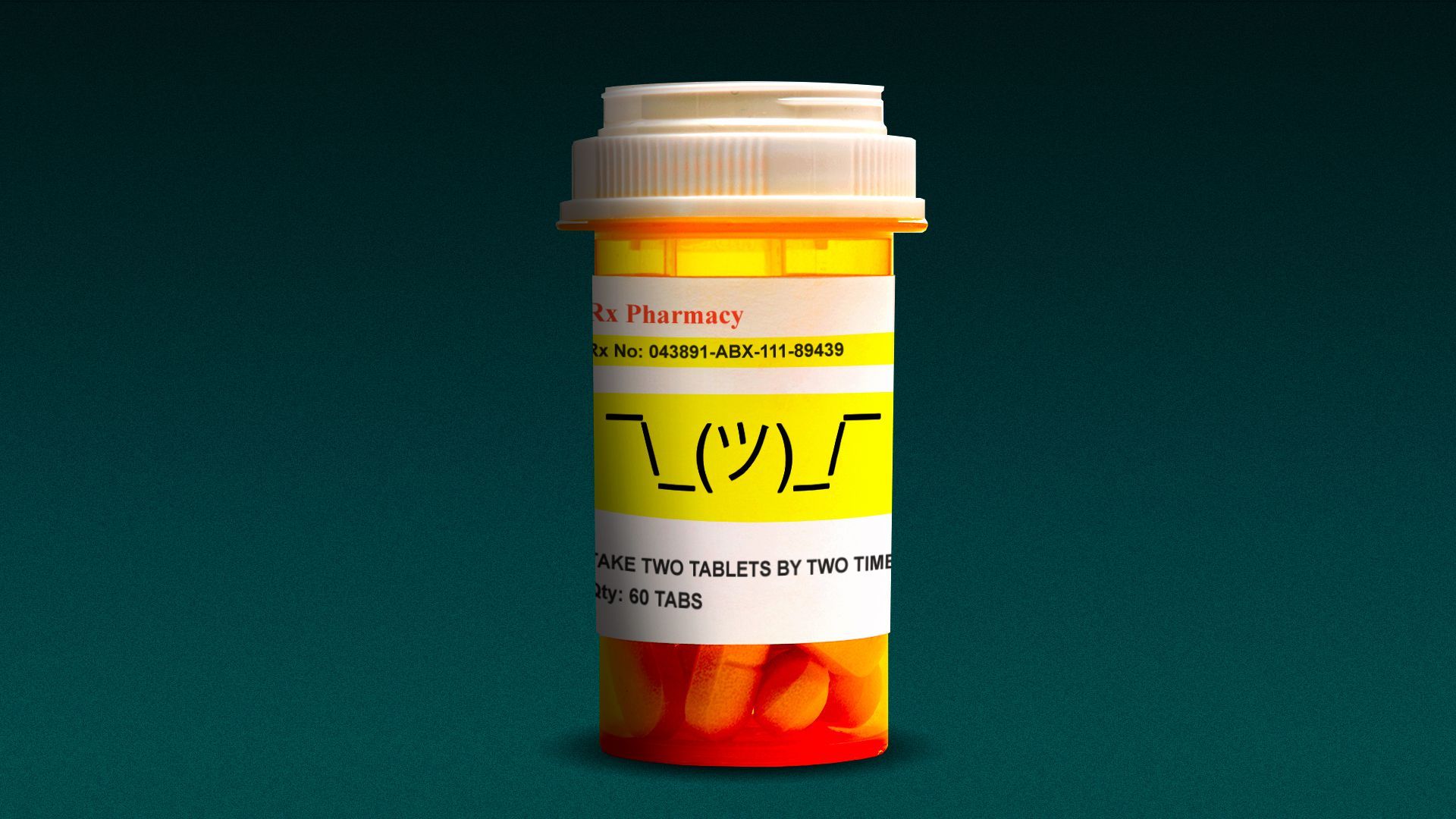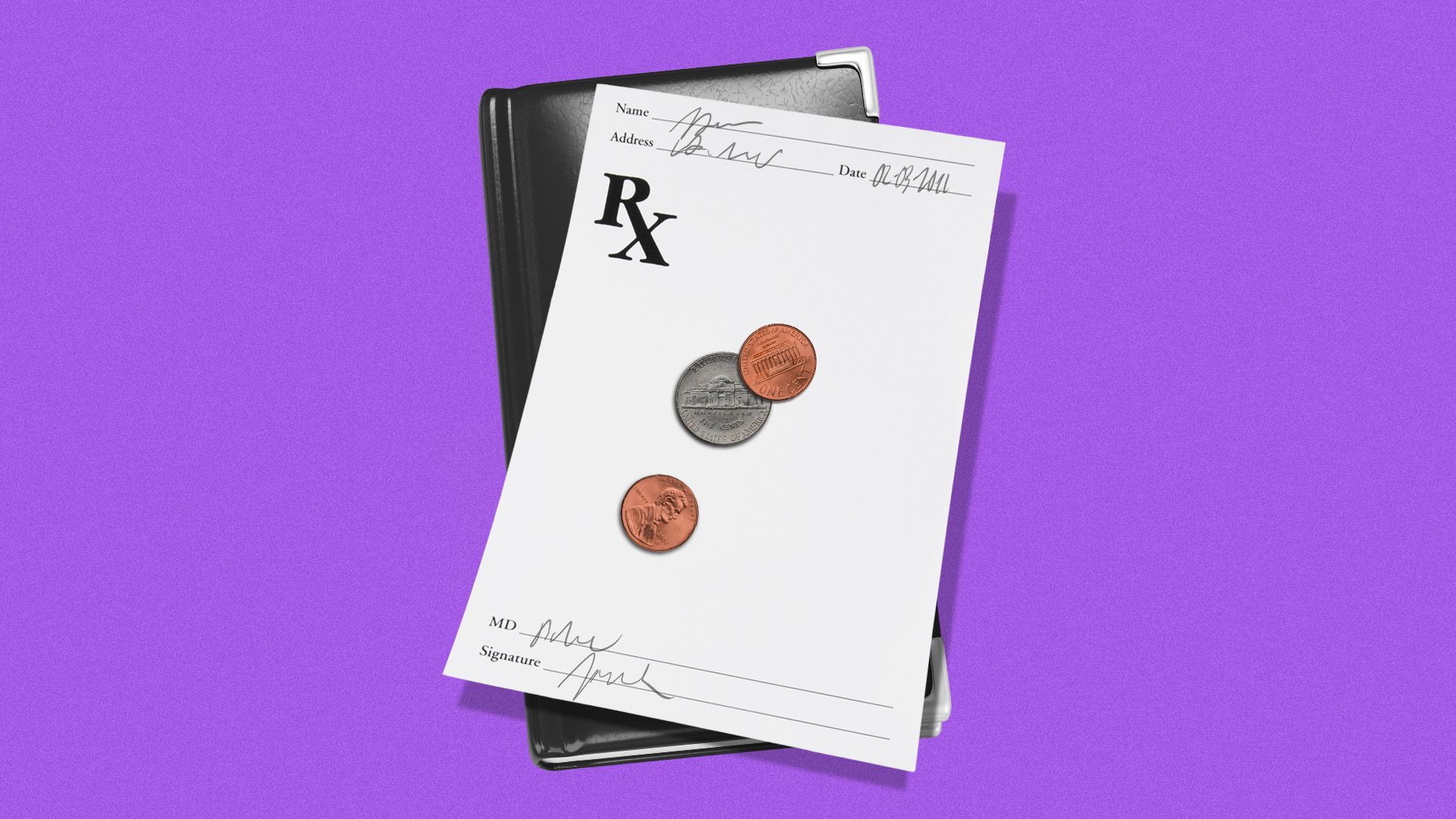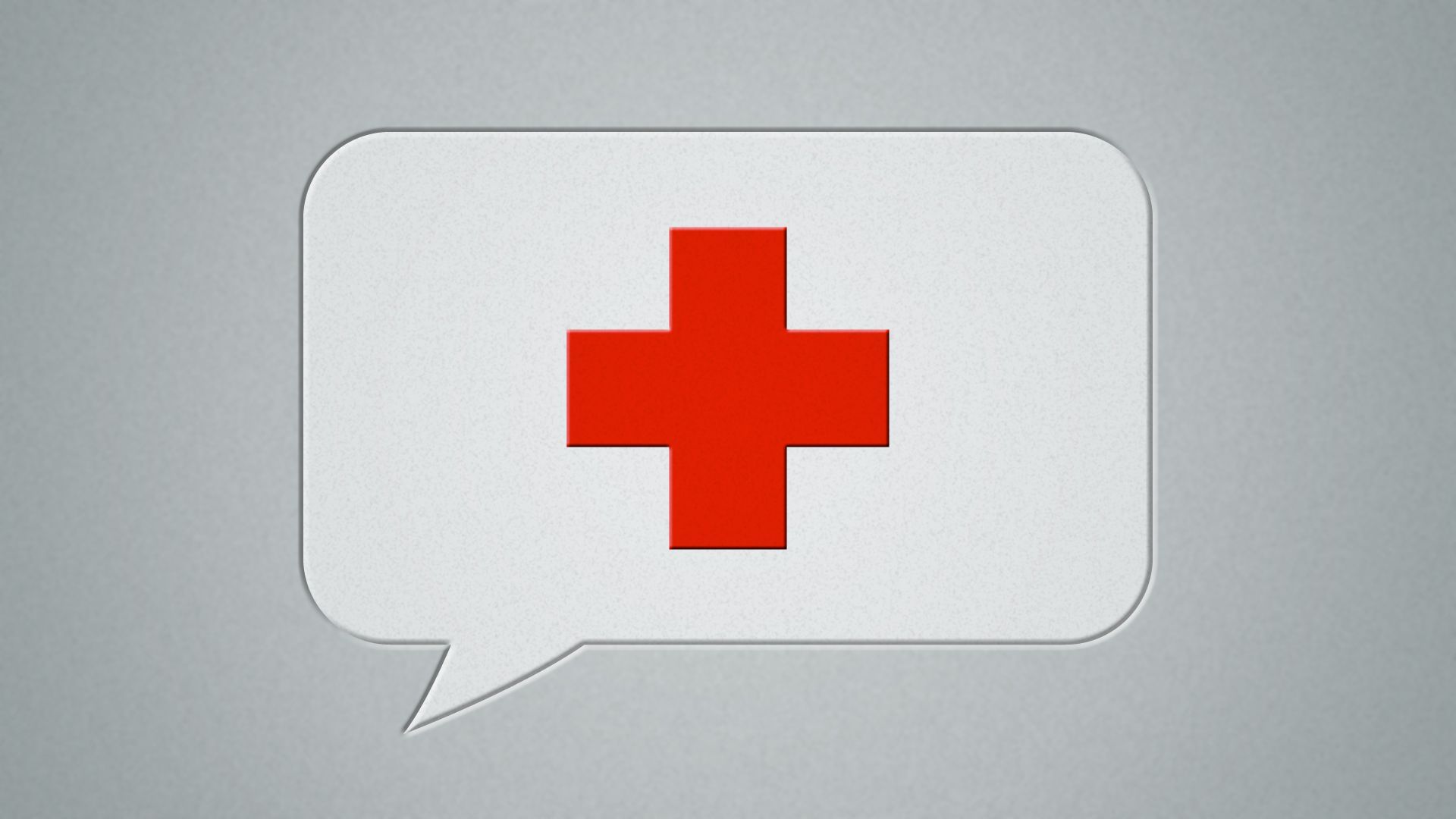| | | | | | | Presented By Protect the Promise | | | | Axios Vitals | | By Tina Reed · May 25, 2022 | | Good morning, Vitals readers. Today's newsletter is 1,132 words or a 4-minute read. 🚨 Situational awareness: Baby formula manufacturers, including Abbott Nutrition, and FDA commissioner Robert Califf will testify today on the shortage in front of a House Energy and Commerce subcommittee. | | | | | | 1 big thing: Washington targets prescription drug middlemen — again |  | | | Illustration: Annelise Capossela/Axios | | | | Pharmacy benefit managers are back in the hot seat, facing pressure from both Congress and the Federal Trade Commission — as well as the now customary wrath of drugmakers, pharmacies, hospitals and patient groups, Axios' Caitlin Owens writes. Why it matters: The finger-pointing up and down the drug supply chain is an attempt to pass off blame for rising drug costs, but it also highlights complex policy tradeoffs that ultimately determine who pays for drugs, and how. Driving the news: The FTC recently deadlocked on a motion to study how PBMs influence drug prices and the pharmacy business, but the confirmation of a fifth commissioner since then has created a Democratic majority and increased the chances of a PBM investigation. - In the meantime, today's the deadline for public responses to an agency request for information on PBM practices, and many health industry and advocacy groups have seized the opportunity to air grievances.
- One example: PBM's business practices "directly cause patient harm, increase patient costs for older, low-cost generics, delay patient access to new generics and biosimilars, imperil billions in annual savings for taxpayers and the U.S. health care system, and undermine the long-term viability of generic drug competition," wrote the Association for Accessible Medicines, which represents generic drug manufacturers.
- Sens. Maria Cantwell and Chuck Grassley introduced legislation yesterday that would prohibit certain PBM practices, like "spread pricing."
The bottom line: If the FTC investigates, it could add what many experts say is much-needed transparency into the industry. - But some say that an FTC investigation should focus on the entire drug supply chain and not just on the middlemen.
- "We can't just look at one sliver of the supply and payment chain," said J.C. Scott, CEO of the Pharmaceutical Care Management Association, which represents PBMs.
Go deeper. |     | | | | | | 2. Ban prevented 2M surprise bills so far |  | | | Illustration: Sarah Grillo/Axios | | | | The federal surprise billing ban prevented 2 million potential unexpected medical bills from reaching privately insured patients early this year, Axios' Adriel Bettelheim writes from an analysis released by leading health plans Tuesday. Why it matters: Insurers, providers and employers are waiting for the Biden administration to lay out a new arbitration process for settling payment disputes after a federal judge tossed out a proposed fix in late February. Background: The surprise billing law bans many types of out-of-network medical bills and puts the onus on doctors and health plans to settle disputes or request arbitration while holding patients harmless. A key factor: The arbiter was supposed to select the offer closest to the median in-network rate unless other information showed the rate wasn't appropriate. - Hospitals and the American Medical Association successfully challenged that process, saying the median in-network rate shouldn't be the guiding factor.
What they're saying: America's Health Insurance Plans and the Blue Cross-Blue Shield Association said their analysis shows the process established a measure of predictability in health costs. - If even a fraction were settled through dispute resolution, it would far exceed the government's estimate, the insurers said.
|     | | | | | | 3. Drug, alcohol and suicide deaths surge | | Deaths connected with alcohol, drugs and suicide claimed 186,763 U.S. lives in 2020, a 20% year-over-year increase and the highest number of substance misuse deaths ever recorded for a single year, Adriel reports on data released by the Trust for America's Health and Well Being Trust yesterday. The big picture: The effects of the pandemic combined with financial distress and a continued rise in synthetic opioid use have exacerbated a hydra-headed problem that existing state and federal programs and policies can't slow, experts say. By the numbers: Between 2019 and 2020, the U.S. saw a 27% jump in alcohol-induced deaths and a 30% increase in drug-induced deaths, with the effects weighing heaviest in communities of color and young adults. - The rise in deaths occurred across all states and the District of Columbia, except for New Hampshire.
- For the first time, two states — West Virginia and New Mexico — surpassed 100 deaths from alcohol, drugs, and suicide per 100,000 people.
Between the lines: The demographics of who is dying from drugs have changed substantially in the past few years. - The report notes that in 2015, white Americans had a drug-induced mortality rate 52% higher than Black Americans. By 2020, Black Americans' mortality rate was 15% higher.
- Another big shift is geographic: drug deaths increased markedly in the South and West after years of lower rates in these regions.
What's ahead: The findings could provide fodder for congressional efforts to enact mental health legislation later this year, including more stringent enforcement of mental health parity laws. If you or someone you know may be considering suicide, contact the National Suicide Prevention Lifeline at 1-800-273-8255 (En Español: 1-888-628-9454; Deaf and Hard of Hearing: dial 711 then 1-800-273-8255) or the Crisis Text Line by texting HOME to 741741. |     | | | | | | A message from Protect the Promise | | Take Medicare cuts off the table | | |  | | | | Seniors and people with disabilities depend on Medicare for access to high-quality, affordable health care. Congress must reject proposals that attempt to take money from Medicare to fund other programs. Protect these vital benefits for millions of Americans. Learn more. | | | | | | 4. 1 in 5 COVID infections may become long COVID |  | | | Illustration: Sarah Grillo/Axios | | | | Roughly one in five adults younger than 65 — and one in four seniors — will go on to develop another health condition that might be attributable to previous COVID-19 exposure, new CDC data shows. Why it matters: The data quantifies just how prevalent COVID aftereffects may be in the general population. - Those conditions include kidney failure, skeletomuscular conditions, and blood clots and other vascular issues.
Zoom in: The study analyzed more than 353,000 de-identified electronic health records from the Cerner Real-World database between March 2020 to November 2021. - Researchers found those who've recovered from a COVID-19 infection have twice the risk for developing pulmonary embolism or respiratory conditions.
- Patients 65 and older in the study were at increased risk for neurologic conditions and four of five mental health conditions.
|     | | | | | | 🗣 5. Readers respond: The language of health care |  | | | Illustration: Megan Robinson/Axios | | | | I received some interesting reader feedback after writing earlier this week about how words are used in medical records. - That story referenced a recent study that pointed to common phrases used by clinicians like "the patient denies" as sounding belittling and distrustful.
What they're saying: Ron Cohen, CEO of Acorda Therapeutics and former chairman of the Biotechnology Innovation Organization wrote in, saying a particular phrase has bugged him for years since a professor at Columbia Medical School pointed it out: "The patient failed [treatment.]" - The phrase effectively blames the patient, the professor said.
- "He asked us to consider that ill patients are also anxious or downright scared, and that linguistically transferring responsibility to them "was particularly perverse, and on some level even damaging to their emotional states and will to fight."
Yes, but: Amelia Gaillard, a medical professional with several family members in the industry, took umbrage with the idea of pushing already bogged down clinicians to worry about whether clinical language might be taken the wrong way. - "Encumbering a busy nurse practitioner or physician with more nonmedical things to spend their brain time and energy is not a good idea," she wrote. "What we all want is for the doc to look at us, listen to us and use their vast knowledge to heal us and our loved ones."
|     | | | | | | A message from Protect the Promise | | Take Medicare cuts off the table | | |  | | | | Seniors and people with disabilities depend on Medicare for access to high-quality, affordable health care. Congress must reject proposals that attempt to take money from Medicare to fund other programs. Protect these vital benefits for millions of Americans. Learn more. | | |  | It's called Smart Brevity®. Over 200 orgs use it — in a tool called Axios HQ — to drive productivity with clearer workplace communications. | | | | | | Axios thanks our partners for supporting our newsletters. If you're interested in advertising, learn more here.
Sponsorship has no influence on editorial content. Axios, 3100 Clarendon Blvd, Suite 1300, Arlington VA 22201 | | | You received this email because you signed up for newsletters from Axios.
Change your preferences or unsubscribe here. | | | Was this email forwarded to you?
Sign up now to get Axios in your inbox. | | | | Follow Axios on social media:    | | | | | |








No comments:
Post a Comment